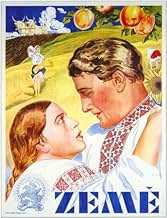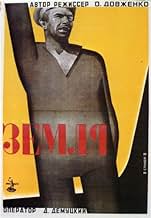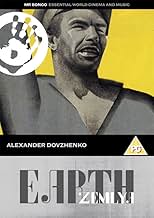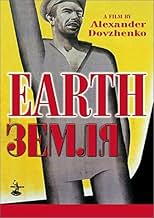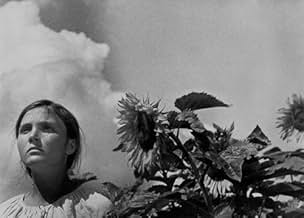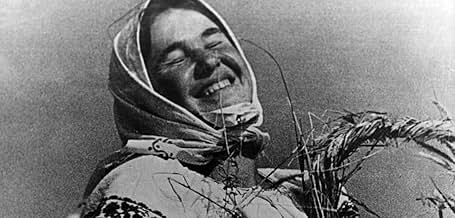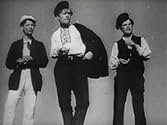ÉVALUATION IMDb
7,2/10
6,6 k
MA NOTE
Dans la campagne paisible, Vassily s'oppose aux riches kulaks contre l'arrivée de l'agriculture collective.Dans la campagne paisible, Vassily s'oppose aux riches kulaks contre l'arrivée de l'agriculture collective.Dans la campagne paisible, Vassily s'oppose aux riches kulaks contre l'arrivée de l'agriculture collective.
- Prix
- 1 victoire et 1 nomination au total
Stepan Shkurat
- Opanas
- (as S. Shkurat)
Semyon Svashenko
- Vasyl - son of Opanas
- (as S. Svashenko)
Yuliya Solntseva
- Daughter of Opanas
- (as Yu. Solntseva)
Yelena Maksimova
- Natalya - Vasyl's fiancee
- (as Ye. Maksimova)
Nikolai Nademsky
- Ded Semyon
- (as N. Nademsky)
Ivan Franko
- Kulak Belokon
- (as I. Franko)
Pyotr Masokha
- Khoma - son of kulak Belokon
- (as P. Masokha)
Vladimir Mikhaylov
- Priest
- (as V. Mikhaylov)
Pavel Petrik
- Young Party-Cell Leader
- (as P. Petrik)
P. Umanets
- Chairman of the Village Soviet
- (as Umanets)
Luka Lyashenko
- Young Kulak
- (as L. Lyashenko)
Vasiliy Krasenko
- Old Peter
- (uncredited)
M. Matsyutsia
- Farm Girl
- (uncredited)
Histoire
Le saviez-vous
- AnecdotesSoviet censors made Aleksandr Dovzhenko eliminate a number of scenes from the film, including the scene of peasants urinating into a tractor radiator, and the scene of nude woman mourning over her dead fiance. The original uncut version was screened in Ukrainian republic when first released, and then in the Museum of Modern Art (New York City, USA) about 40 years later, on 10 October 1969.
- Autres versionsIn 1997, the film was re-released in Germany by ZDF, with a new score composed by Alexander Popov. This version was digitally improved (known as Arte Edition), then released on DVD and distributed by the absolut MEDIEN GmbH in 2006. The running time is 78 minutes. The crew participants:
- Alexander Popov, Composer;
- Frank Strobel, Conductor;
- Evgeniy Nikulskiy, Sound engineer;
- Nina Goslar, Commissioning editor.
- ConnexionsEdited into Le tombeau d'Alexandre (1993)
Commentaire en vedette
This great masterpiece of Soviet cinema has images so powerful and an editing technique so bold that at times the narrative is transcended. By this I mean that the film goes beyond it's original intention of arguing for changes from individualistic to more technologized and collective agricultural strategies and becomes a kind of realization of what a "liberated" agricultural zone would really look and feel like. This is a film ripe with the excitement of the creation of a new art to match a hopeful new world. It hardly needs to be mentioned that Stalinsit forces decried the final results of this masterpiece; calling it decadent and stylistically elitist. In actuality the film is too Marxist (I would go so far as to say too Leninist) for Stalinism. The film respects the ability of the viewer (and the viewers were assumed to be proletariat working class and agricultural workers) to grapple with rigorous ideas and images and to function outside of the narrative frame of individualistic melodrama. Like many early Soviet films this work seems not only ahead of its time, but, actually ahead of ours.
- Rigor
- 8 mai 1999
- Lien permanent
Meilleurs choix
Connectez-vous pour évaluer et surveiller les recommandations personnalisées
- How long is Earth?Propulsé par Alexa
Détails
- Durée1 heure 15 minutes
- Mixage
- Rapport de forme
- 1.33 : 1
Contribuer à cette page
Suggérer une modification ou ajouter du contenu manquant



